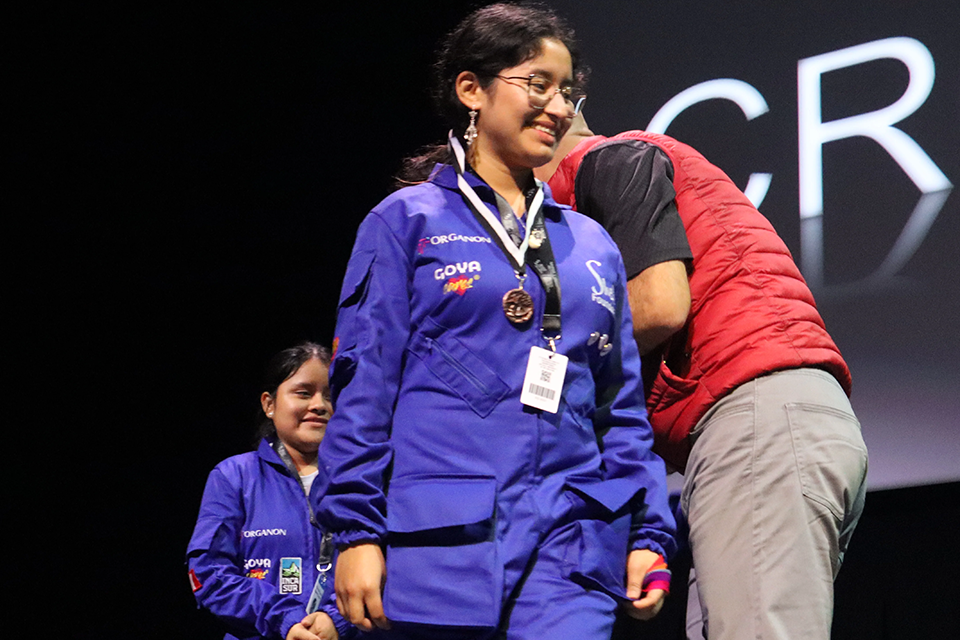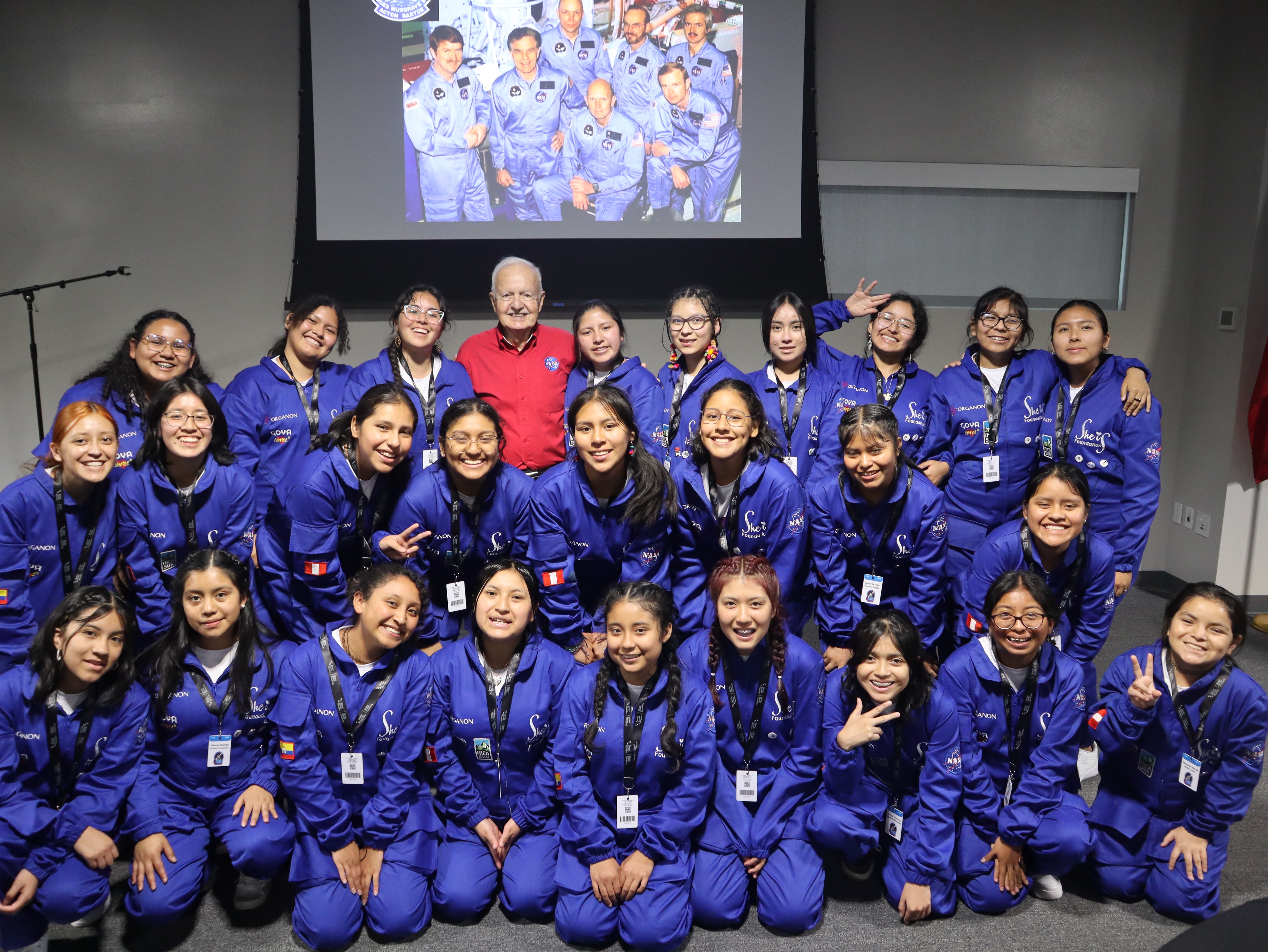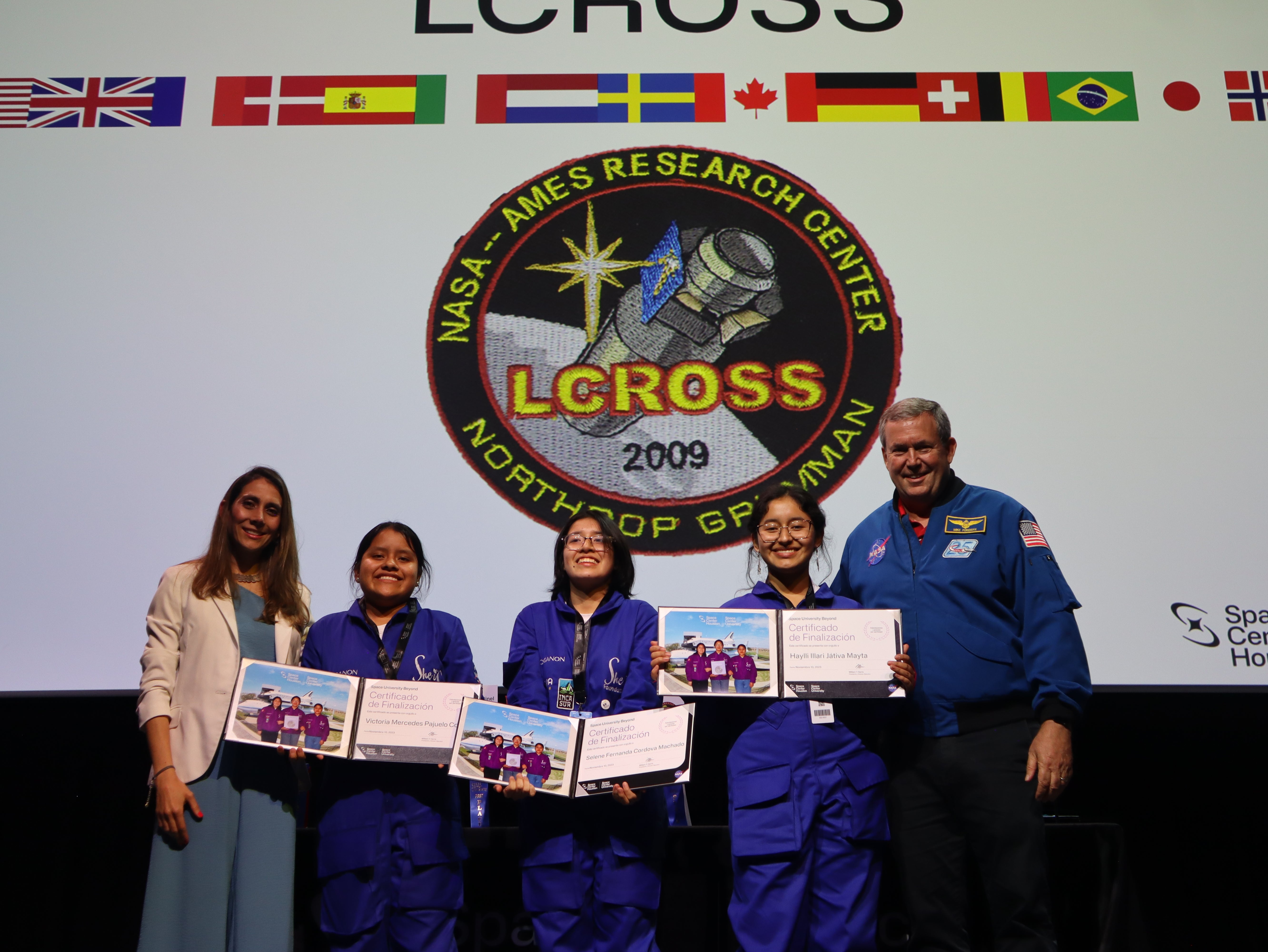Hayli Játiva: a young Ecuadorian woman creating innovative solutions by combining her cultural heritage and artificial intelligence
Date:

Digital inclusion of women and girls is critical to closing the gender gap in science, technology, engineering, and mathematics (STEM). Globally, there are inspiring and pioneering young women who participate in traditionally male-dominated fields and become leaders and agents of change in their communities.
Globally, only 30% of female scientific researchers and 35% of students in STEM are women. Despite the obstacles, women and girls lead innovation and research spaces through programs such as “She is an Astronaut.”
Hayli Játiva is an emerging and visionary Ecuadorian leader who develops solutions to improve the quality of life of her community through science and technology.
Participating in the “She's an Astronaut” program on a trip to the NASA Space Center in Houston, Texas, helped Hayli, 18, find her purpose in life: to use her passion for science to drive change in her community. With the program's support and the inspiration of her indigenous Quichua Saraguro heritage, Hayli set out to create the Flowbot. This innovative system combines artificial intelligence with ancestral medicine to bring accessible and culturally relevant health care to underprivileged communities.

Hayli is determined to make a difference in the lives of those around her. Her dedication and perseverance led her to develop two prototypes of the Flowbot, each designed to address specific needs within her community, from blood pressure measurement to emotional care.
This project represents not only a technological breakthrough but also an act of empowerment and social justice, using science as a tool to improve the lives of others and address long-standing inequalities in access to health care.
Her message is simple but powerful: “To all the girls and young women in the world who want to be scientists, I say, never stop learning, never stop dreaming, and never doubt your ability to reach for the stars.”

The program has significantly impacted Ecuador, with over 889 registrations and 14 girls selected to participate in transformative experiences at the NASA Space Center. These girls come from eight different provinces, demonstrating the national coverage of the program and its ability to reach diverse communities throughout the country, from urban to remote areas, through partnerships with schools, non-profit organizations, and government agencies, transcending social and economic limitations.
Through “She's an Astronaut,” Ecuadorian girls have developed science, technology, engineering, and mathematics (STEM) skills and soft skills such as leadership and problem-solving. Many of these girls have returned their acquired knowledge to their communities, inspiring others and creating a ripple effect of change and empowerment.
About “She Is Astronaut”.
“She Is Astronaut” is an initiative of the She Is Foundation and NASA Space Center, supported in Ecuador by companies such as Organon, Grupo Ekos, and RAW, with essential support from UN Women. This collaboration highlights UN Women's commitment to empowering girls, promoting their leadership in areas typically dominated by men, and helping them overcome social and economic barriers.